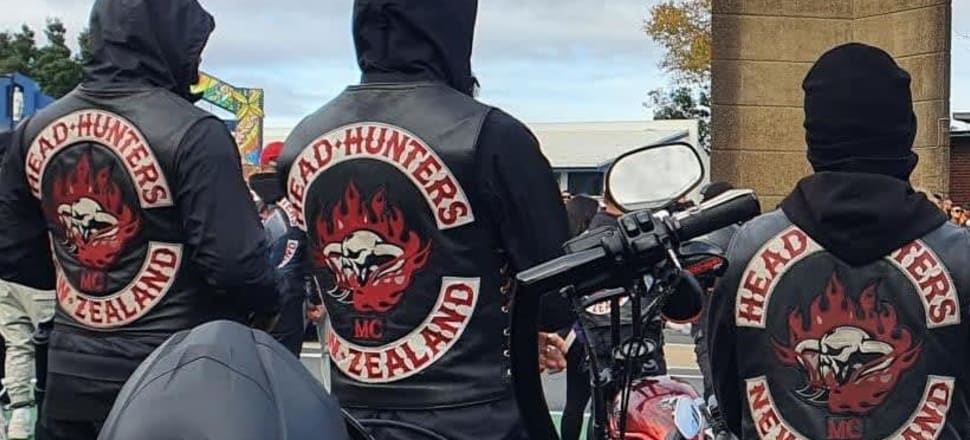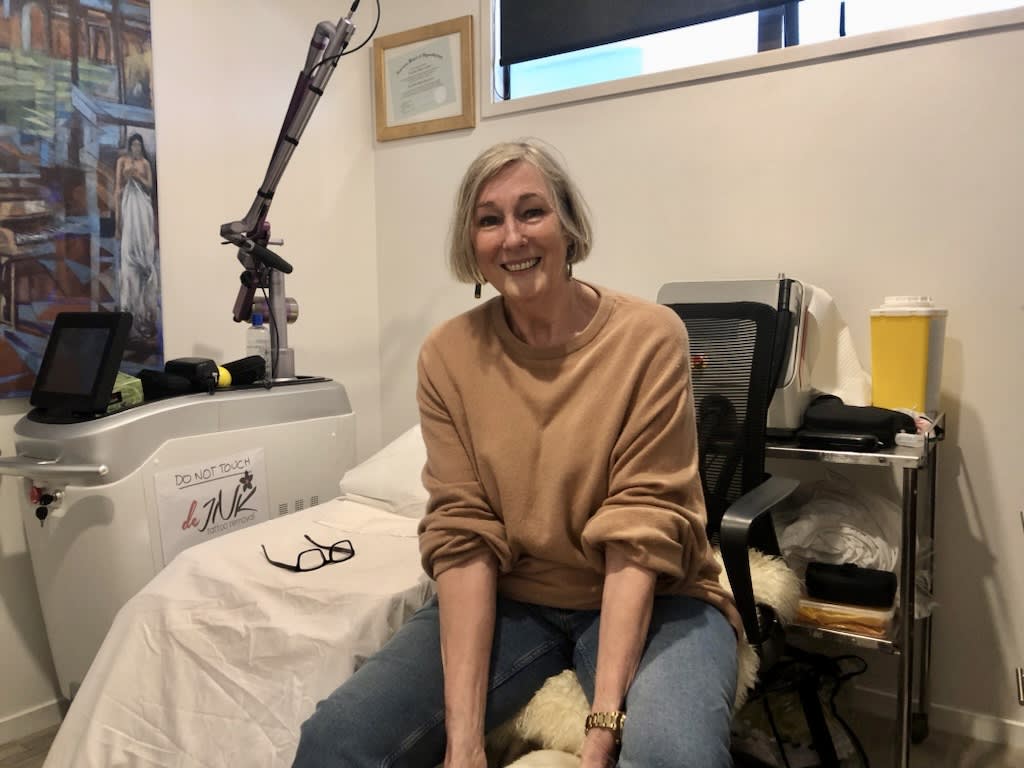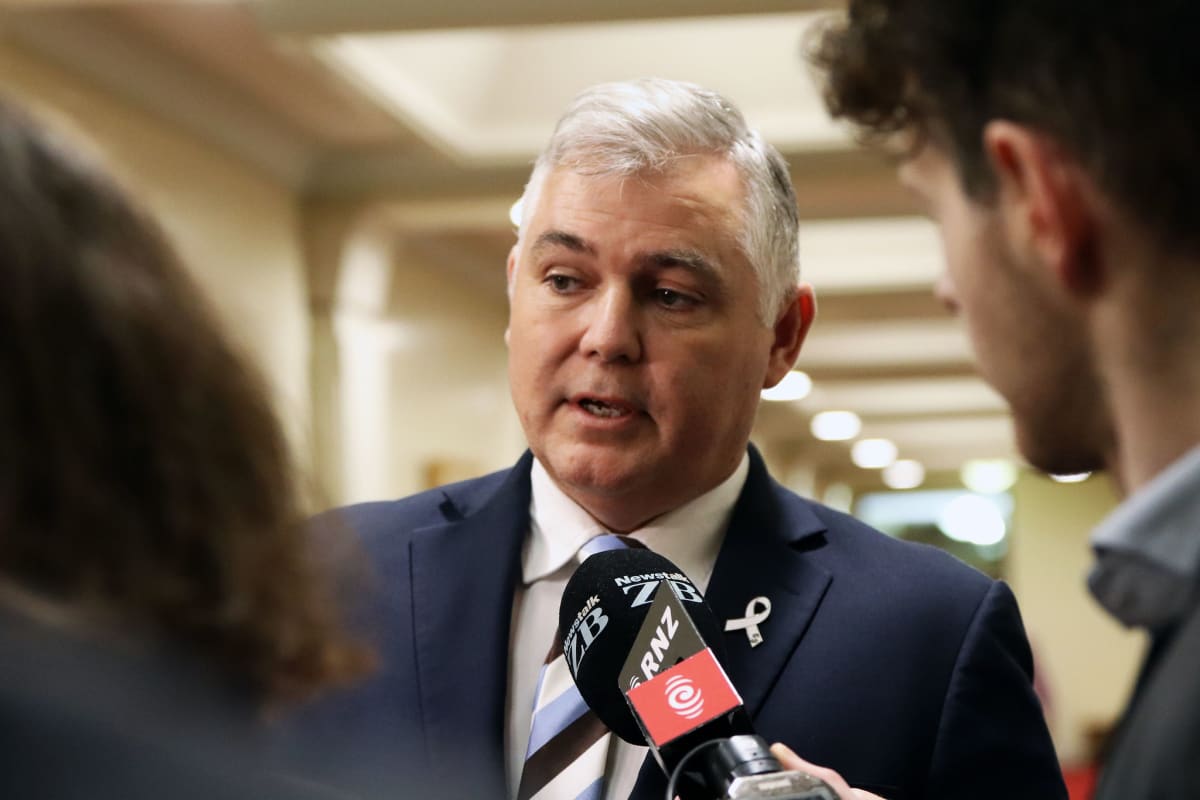
The political parties that will soon form the new government all promised a crackdown on gangs. The banning of gang patches will be their first move and a ban on visible tattoos could follow.
Gang members covering their facial tattoos with make-up sounds laughable but hardcore bikies might find it preferable to the alternative.
Having your tattoo removed is like getting hot fat poured on your skin, says Helena Carter, owner of deINK Tattoo Removal.
But that doesn't stop the months-long queues of prisoners wanting the markings off their faces and necks.
About a third of Carter's work is in Auckland prisons with her laser machine, soothing her clients as she puts them through the excruciating pain of getting rid of their tattoos.
Large tattoos take several sessions and the longer the session the more painful the removal, but Carter says it is not safe to do it all at once.
"The ink is being released into the body and it can overwhelm the body. When we hit it with the laser it explodes the ink into much smaller molecules and then the body comes along and eats up the molecules," Carter tells The Detail.

A healthy body will take three months to get the ink out of the organs.
Carter says even the most hardened prisoners are nervous about the procedure and she uses humour to ease them.
"When they first come I go, 'ooh you haven't been tortured by me before, have you?'"
Her work is mostly funded through a programme for tattooed prisoners who would struggle to get on with their lives once they are released if they didn't have their markings taken off.
Taxpayer-funded prisoner tattoo removal is controversial but Carter says it is important to support them.
"Not all people got their tattoos willingly. All we can do is help when they're ready to get out the other side, and if we don't, then those guys don't stand a chance."
The new government is vowing to take a hard line with gang members, including those with tattoos showing gang affiliations.
The man expected to be the next police minister, Mark Mitchell, says the police will be allowed to search suspected gang members, their vehicles and properties without warrants, and issue dispersal notices banning gang members from talking to others. Gang activity would also be banned on social media.

Mitchell says if National's ban on gang patches doesn't work, facial tattoos may be banned, a similar approach to parts of Australia where he says gang members have to put on foundation to cover their tattoos.
But Mark Lauchs, associate professor at the school of justice studies at Queensland University of Technology, says what's worked in Australia may not succeed in New Zealand.
He's studied organised crime around the world and says New Zealand's gangs are different to the bikie gangs across the Tasman.
"What is a gang is a very, very different picture to what we have here. You just can't say that the bikie laws of Australia will work dealing with the Mongrel Mob."
Lauchs tells The Detail that Western Australia may have brought in tough rules on facial tattoos, but no other state has followed.
"I just can't picture the average motorcycle gang member wearing foundation under any circumstance. So practicality might be the issue, but contradictorily, we regularly arrest people in Queensland for having paraphernalia from a club that the average person couldn't see, such as a ring."
The police would confiscate the ring but a gang member would get away with a facial tattoo.
"Can you force someone to physically change their body? Maybe that's going a step too far," says Lauchs.
Queensland's programme to outlaw motorcycle gangs has successfully rid the state of them and consequently shut down a lot of crime, he says, but they have shifted to other parts of Australia.
"Queensland was the first state to have a law that was validated by the High Court. Every other state after that has had a problem of where do they displace their bikies to. It's now too late for Canberra and Victoria because they're last," he says.
New Zealand faces the same problem because it is one jurisdiction.
"Where are they going to go? Because they're never coming back into Australia. Our success came from the fact that the violent men left."
Check out how to listen to and follow The Detail here.
You can also stay up-to-date by liking us on Facebook or following us on Twitter.








